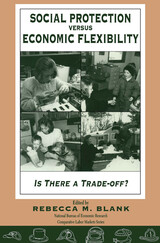
The poet Hölderlin posed the question, "Is there a measure on earth?" His own answer was emphatic, "There is none," for he was convinced that the measure for man was to be found only in the domain of the heavenly beings. Such metaphysical assumptions, as well as the attempt to found ethical conduct in the nature of man as a rational being, have been rejected by many contemporary thinkers, particularly Heidegger. Yet these thinkers have not been able to provide a satisfactory alternative to metaphysical foundations of the standards for responsible human conduct.
Marx, therefore, goes beyond Heidegger in demonstrating how several of his most basic notions could be relevant to a secular morality in our age. It is death, Marx claims, that unsettles man and transforms his conduct toward his fellow man. the common experience of mortality nourishes ethical life—and leads to the measures of compassion, love, and recognition of one's fellow human beings.
"It is only on the basis of these 'traditional virtues,'" Marx writes, "that we can find a motive for averting the impending dangers which have often enough been described so vividly and convincingly."

Stanley Fish is one of America’s most stimulating literary theorists. In this book, he undertakes a profound reexamination of some of criticism’s most basic assumptions. He penetrates to the core of the modern debate about interpretation, explodes numerous misleading formulations, and offers a stunning proposal for a new way of thinking about the way we read.
Fish begins by examining the relation between a reader and a text, arguing against the formalist belief that the text alone is the basic, knowable, neutral, and unchanging component of literary experience. But in arguing for the right of the reader to interpret and in effect create the literary work, he skillfully avoids the old trap of subjectivity. To claim that each reader essentially participates in the making of a poem or novel is not, he shows, an invitation to unchecked subjectivity and to the endless proliferation of competing interpretations. For each reader approaches a literary work not as an isolated individual but as part of a community of readers. “Indeed,” he writes, “it is interpretive communities, rather than either the text or reader, that produce meanings.”
The book is developmental, not static. Fish at all times reveals the evolutionary aspect of his work—the manner in which he has assumed new positions, altered them, and then moved on. Previously published essays are introduced by headnotes which relate them to the central notion of interpretive communities as it emerges in the final chapters. In the course of refining his theory, Fish includes rather than excludes the thinking of other critics and shows how often they agree with him, even when he and they may appear to be most dramatically at odds. Engaging, lucid, provocative, this book will immediately find its place among the seminal works of modern literary criticism.

Does tying health insurance to employment limit job mobility? Do housing policies inhibit workers from moving to new jobs in different areas? What are the effects of daycare and maternity leave policies on working mothers? The authors explore these and many other questions in an effort to understand why European unemployment rates are so high compared with the U.S. rate. Through an examination of diverse data sets across different countries, the authors find that social protection programs do not strongly affect labor market flexibility.
A valuable comparison of labor markets and welfare programs, this book demonstrates how social protection policies have affected employment rates around the globe.
READERS
Browse our collection.
PUBLISHERS
See BiblioVault's publisher services.
STUDENT SERVICES
Files for college accessibility offices.
UChicago Accessibility Resources
home | accessibility | search | about | contact us
BiblioVault ® 2001 - 2024
The University of Chicago Press









